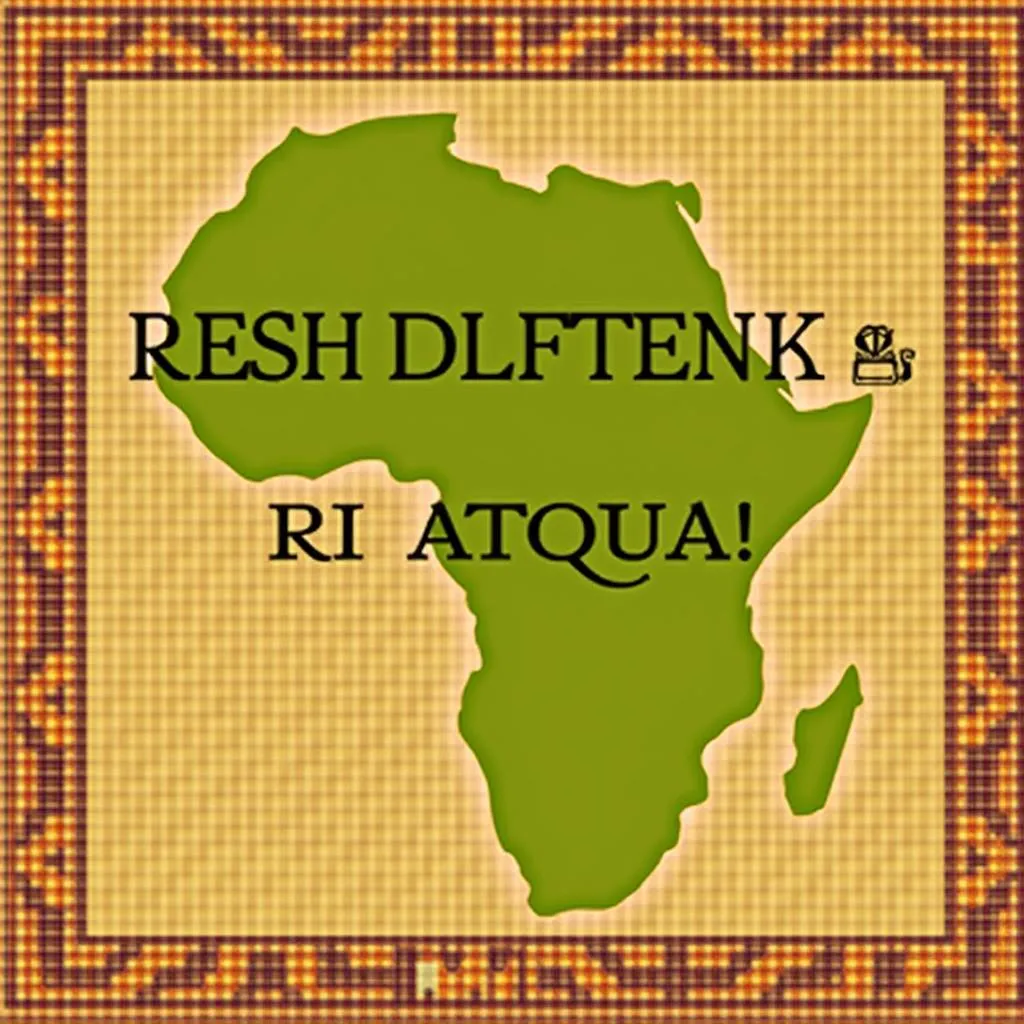The Fascinating World of African Culture: A Journey Through Traditions, Art, and Music
The continent of Africa is a treasure trove of vibrant cultures, diverse traditions, and captivating art forms. From the ancient pyramids of Egypt to the bustling markets of Morocco, each region boasts unique customs, languages, and artistic expressions that reflect the continent’s rich history and diverse heritage. Join us as we delve into the fascinating world of African culture, exploring its captivating music, traditional art, vibrant cuisine, and the intriguing customs that shape life on this incredible continent.
A Tapestry of Traditions: Exploring Diverse Cultural Practices
Africa is a land of diverse cultures, each with its own unique traditions and customs. These traditions play a vital role in shaping the lives of Africans, providing a sense of identity, community, and continuity.
Family and Community: In many African cultures, the family is the cornerstone of society. Extended families often live together, supporting each other through life’s joys and challenges. This strong sense of community is deeply embedded in African values and traditions, fostering a sense of belonging and shared responsibility.
Ceremonies and Rituals: Life events, from births and weddings to funerals and celebrations, are often marked by elaborate ceremonies and rituals. These traditions are a testament to the importance of honoring ancestors, celebrating life, and maintaining the continuity of cultural heritage.
Spiritual Beliefs: African spirituality is diverse and often involves a belief in a supreme being, ancestors, and the natural world. Traditional beliefs are often intertwined with daily life, influencing everything from farming practices to healing rituals.
Language and Storytelling: Africa is home to a vast array of languages and dialects, reflecting the continent’s rich linguistic diversity. Storytelling is an integral part of African culture, passing down knowledge, wisdom, and traditions through generations.
The Art of Africa: A Journey Through Visual and Performing Arts
Africa’s artistic heritage is as diverse and captivating as its landscapes. From ancient rock art to contemporary sculptures, painting, and dance, African art reflects the continent’s rich cultural tapestry.
Traditional Art: Traditional African art is deeply rooted in cultural beliefs, mythology, and daily life. It includes a wide range of expressions, from intricate masks and sculptures to vibrant textiles and ceramics.
Music and Dance: Music and dance are central to African Life, serving as forms of expression, storytelling, and celebration. African music is characterized by complex rhythms, intricate melodies, and a wide range of instruments. Dance is a vibrant and expressive art form, reflecting the joy, sorrow, and spirituality of the people.
Modern Art: Contemporary African art is a vibrant and innovative movement, reflecting the continent’s changing landscape and challenging traditional perspectives. Artists are exploring new themes, techniques, and materials, creating a dynamic and thought-provoking art scene.
A Culinary Adventure: Savoring the Flavors of Africa
African cuisine is a diverse and delicious culinary journey, reflecting the continent’s varied landscapes, climate, and cultures. Each region boasts its own unique ingredients, cooking techniques, and culinary traditions.
Traditional Dishes: African cuisine features a wide range of traditional dishes, from the hearty stews of West Africa to the flavorful curries of East Africa. Common ingredients include rice, beans, cassava, yams, plantains, and a variety of meats and seafood.
Spice and Flavor: African cuisine is known for its bold flavors, with spices playing a prominent role in many dishes. Popular spices include cumin, coriander, ginger, chili peppers, and turmeric, adding depth and complexity to the flavors.
Modern Cuisine: Contemporary African chefs are reimagining traditional dishes, incorporating modern techniques and ingredients while staying true to the essence of their cultural heritage. This fusion of traditional and contemporary is creating a dynamic and innovative culinary scene across the continent.
Exploring the Customs and Practices of African Life
African cultures are rich in fascinating customs and practices that shape daily life, social interactions, and community values.
Family and Kinship: Family and kinship play a vital role in African societies, emphasizing shared responsibilities, mutual support, and respect for elders.
Hospitality and Respect: Africans are renowned for their hospitality and warm welcomes. Visitors are often treated with great generosity and respect, reflecting the importance of social bonds and community.
Language and Communication: The richness of African languages and dialects reflects the continent’s diversity. Communication often involves a combination of verbal and non-verbal cues, emphasizing the importance of understanding cultural context.
Dress and Attire: African clothing is diverse and reflects the continent’s rich cultural heritage. From the colorful fabrics of West Africa to the intricate beadwork of East Africa, clothing often serves as a symbol of identity, status, and community.
Conclusion:
Africa is a continent of vibrant cultures, rich traditions, and captivating art forms. It is a land of diversity, resilience, and enduring spirit, where the past meets the present in a harmonious blend of tradition and innovation. Exploring the fascinating world of African culture is an enriching journey that allows us to appreciate the beauty, resilience, and uniqueness of this incredible continent.
FAQ
Q: What are some popular African music genres?
A: Popular African music genres include Afrobeat, Highlife, Soukous, Kwaito, and Juju. Each genre reflects the unique musical traditions of different regions and cultures.
Q: What are some of the most common ingredients used in African cuisine?
A: Common ingredients in African cuisine include rice, beans, cassava, yams, plantains, sweet potatoes, a variety of meats (beef, chicken, goat), and seafood.
Q: What are some famous African artworks?
A: Famous African artworks include the Great Zimbabwe Ruins, the Nok terracotta sculptures, the Benin Bronzes, and the Dogon masks.
Q: What are some of the major cultural events in Africa?
A: Some major cultural events in Africa include the Pan-African Festival, the Durban International Film Festival, the Festival of Arts, and the Soweto Jazz Festival.
Q: How can I learn more about African culture?
A: You can learn more about African culture by visiting museums, attending cultural events, reading books, watching documentaries, and engaging with online resources.

